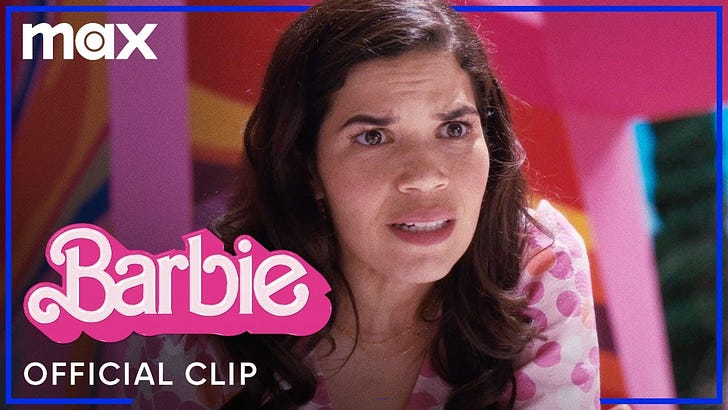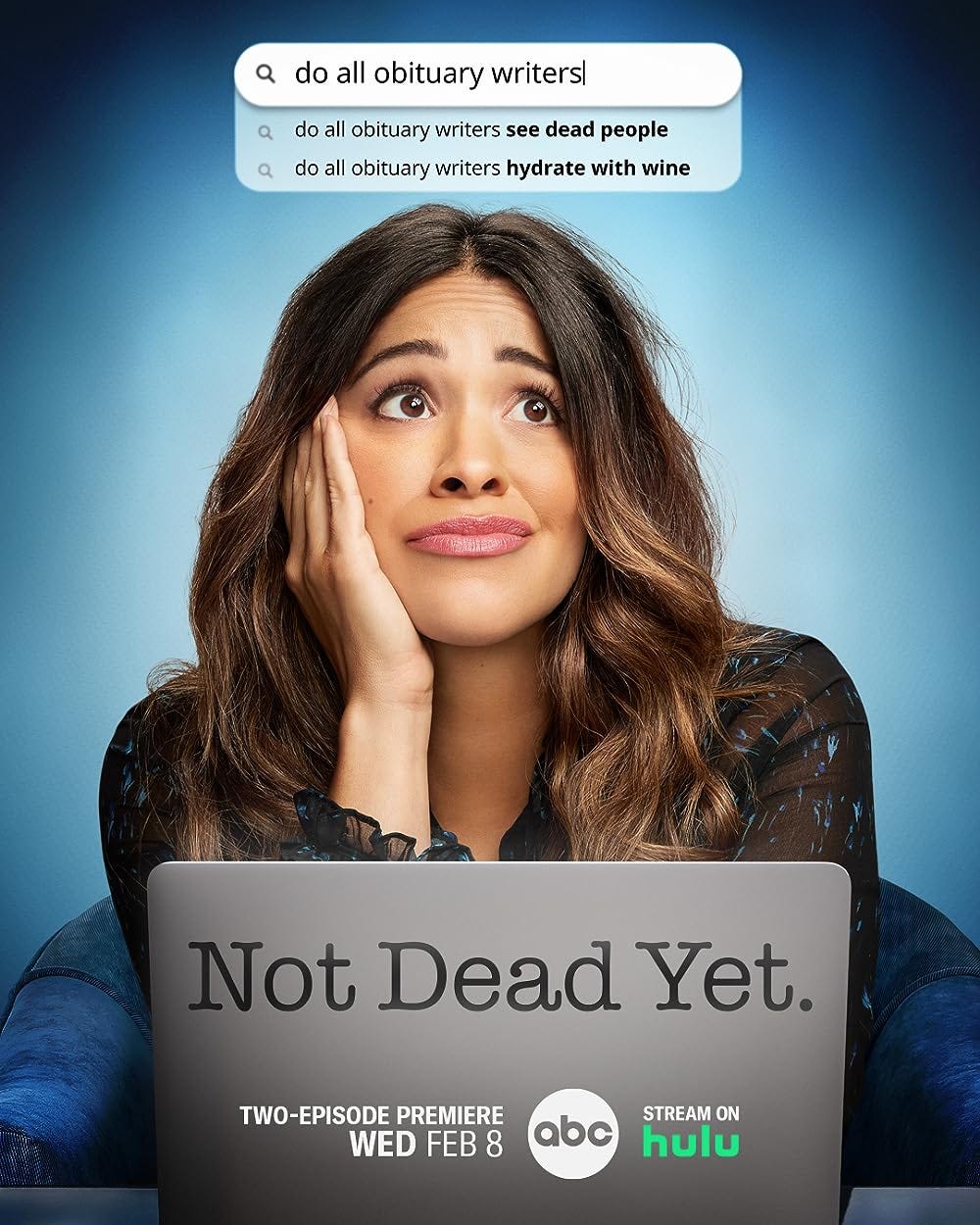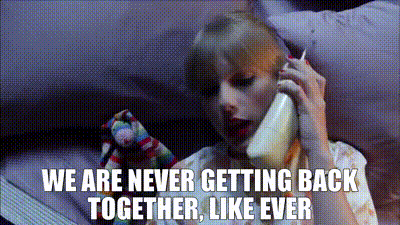Taylor has often been criticized for her lyrics. “She only writes about breakups.” “Her songs are too simple.” “Her lyrics show how immature she is as a person.” In this week’s episode, we focus on the “too simple” complaint and look at songs that demonstrate the use of poetic repetition. Jenn kicks us off with “We Are Never Ever Getting Back Together.” Jodi continues that upbeat feeling with “Shake It Off.” Then Maansi brings us home with a different type of song with “This Love.” The messages of each song are wildly different, but tune in to see how repetition can be an incredibly effective way to communicate your message!
👀 Sneak Peek
🛍️ Shop With Us! Active Discount Codes
As we grow, we are so excited to announce new partnerships! This section moving forward will be reserved for any active discount codes that are available to our listeners.
🔉Libro.fm - Support your local bookstore while listening to great audiobooks.
Code: APTS
Offer: Get a free audiobook when you start a new membership (you must use this link!)
Receive 2 audiobook credits for $14.99 USD with your first month of membership.
Code: APTS30
Offer: 30% off specific audiobooks in the AP Taylor Swift playlist.
✨ Krowned Krystals - Make the whole place shimmer with the best rhinestones
Code: APTS
Offer: 10% off your order when you use the link above
🎒This Week’s Extra Credit - Brought to You by Jenn
Ah, Taylor’s pop singles. I’m sure there are some dads, Brads, and Chads out there who would love to say that we read too much into these songs (read her TIME interview if you want full context on that reference), but I’ve always loved Taylor’s ability to capture those raw, simple, but powerful emotions. Sure, “All Too Well” is a masterpiece, but not all human experiences are masterpiece material. Sometimes you just want to give the middle finger to your ex or to the haters, and that is worth singing about as well.
For this week’s extra credit, I wanted to dig a bit more into something I said in this week’s episode - there is a big difference between whether something is good or bad versus being effective or ineffective. For me personally, a big part of growing up was coming to accept this reality. Just because I didn’t enjoy something or find it to be particularly good (sorry Bon Iver - I know that both Taylor and my husband love you, but I’m just not that into you 🤷♀️), doesn’t mean that it is an objectively bad thing. Figuring out how to navigate these nuanced moments of criticism can be a challenge, so here are a couple of key points that at least helped me.
The Difference Between Opinions and Values
Maybe I’m lucky enough to be around some great people, but I think the distinction between opinions and values is generally well understood. Perhaps not well respected all the time, but well understood.
I recently watched every single available episode of “Not Dead Yet” in about two days (there aren’t many episodes, and I loved it, so don’t judge me too hard). I bring that up because there was a scene in particular that I loved because it demonstrated this distinction so well. So be warned, some slight spoilers ahead!
In the first season, we finally get to meet the girlfriend of one of the main characters, Edward. Now Edward is a massive nerd who is very particular about the state of his home and is an environmental lawyer (all key information for this story). When his girlfriend comes to visit though, he pretends to be into her favorite shows, acts like he doesn’t care about the dirty kitchen, and literally hides some of his more nerdy items. Nell, who is Edward’s roommate, eventually calls him out on this. The climax of the episode is when Edward confesses to his girlfriend that he has been hiding his interests. He is initially relieved when she isn’t mad but confesses that she has also been hiding some things. However, what she has been hiding is that she doesn’t really care about the environment or how her actions could harm the earth or animals. Edward is, obviously, quite disappointed and ultimately ends the relationship.
I felt like that storyline did an incredible job of distinguishing between opinions and values. Edward shared his interests and preferences. His girlfriend shared that she did not hold the same values as him.
For me, this distinction became super important in grad school. Turns out, I genuinely don’t enjoy a lot of “classic” literature out there. However, that didn’t mean that there was no value in reading some of those novels, and I had to start to distinguish better if I simply didn’t enjoy something or if it fundamentally differed from my core values. As someone who is maybe too into confrontation, I tended to lean towards the latter, but seeing professors with years of experience be able to completely disagree and still be cordial was a pretty powerful experience. In serious moments with those I don’t know well, I try to be more thoughtful and nuanced. However, if I’m being honest, I still love a good, mildly unreasonable fight with my loved ones (sorry, not sorry).
(note: this is a gif of Brennan Lee Mulligan, aka my most niche celebrity crush, playing a very nerdy gameshow called “Um, Actually.” If you get this reference, I already love you forever. If you don’t, Google exists for a reason.)
Knowing the Audience
The reason I am a bit more willing to engage in arguments with the people closest to me is because audience really matters. As Jodi said on the podcast - audience before content. This is another incredibly important thing to consider when doing any sort of criticism and analysis. If you don’t personally connect with something, perhaps you are not the intended audience. And that’s ok! In fact, if you were the intended audience for every piece of art, the world of art would be pretty boring. The fact that we have different people creating art for different people is what makes the world of art thrive.
Again, this is easy when it’s simply a matter of taste. If you are not personally into science fiction, then you probably won’t like things like Star Trek. That’s easy to understand and accept. It’s harder when the art has more of a message that starts getting into the world of values. I remember many years ago, Emma Watson gave a speech at the United Nations about gender equity and many people were complaining it was too simplistic. That may be a valid criticism, but I always felt like that speech was intended for people who were either opposed to feminism or truly didn’t understand it—it wasn’t meant for people who are already experts on gender issues. No speech, especially not a thirteen-minute speech, can cover the wide range of issues women are facing. She had to choose an audience and try to drive her point home. A similar situation happened more recently in the world of the Barbie movie.
Barbie is another example of a deeply criticized message. Could the film have engaged more in intersectional feminism? Probably. They had the time for some of it (although seeing Issa Rae as President Barbie was just fantastic - these two sweet little girls agree), but again the question is, “Who is the audience here?” As a film aiming for the widest audience possible, creating a deeply nuanced, layered look into gender roles was probably not their best option. America Ferrara’s speech was incredible, but many criticized it as being too basic, too simple, not anything new. Again, perhaps those critics are correct, but I’m also guessing that those critics weren’t the intended audience. Who was the intended audience then you may ask? Well, my guess is the many women who broke up with their partners after seeing the film.
Yep! That’s right. This film people criticized as not being radical enough was at least radical enough for many women to leave relationships that weren’t working for them. When it comes to your values it is important to stay engaged, thoughtful, and critical, but it’s also important to remember that even people who agree with you may not be on the same page as you. If you think back to key moments in your life that led you to connect to the values you hold today, I guarantee that other people engaged with the same thing and were unmoved. It’s a messy middle ground, but it’s one we have to sit in if we want to create or engage with art without being full of rage every second of every day (or maybe that’s just me - which is totally possible).
For those of you who perhaps haven’t seen the Barbie movie, here is the monologue that moved so many viewers:
The Audience & Values of Taylor Swift’s Pop Singles
In this week’s episode, we get into some of the songs that people most often use when they dismiss Taylor as “not a good songwriter” or someone who is “super basic” (which is such a gendered insult, but we don’t have time for that right now). Specifically, I’m talking about “We Are Never Ever Getting Back Together” and “Shake It Off.” Now, on the whole, I see these criticisms coming from men. I’m sure that many women have thoughts too, but usually, it’s men saying these songs are “bad” or “stupid.” To which my first response would be, “dude, she isn’t talking to you here anyways.” If a man relates to these songs, that’s fantastic. They absolutely CAN be relatable. But I think both of these songs are really written by a women for women.
Second, these songs capture two experiences that women aren’t really supposed to embrace. Being mad and dismissive after a breakup and ignoring anyone who criticizes them. Women are supposed to be beautifully sad and forlorn after a breakup. Women are supposed to take criticism with grace and change themselves constantly to fit what others need them to be. You may say these songs are simple, I say they are liberating.
I will never engage strangers on the internet in a conversation about these types of topics because it’s just a really bad idea, BUT if you have someone in your life who maybe struggles with making the distinction between taste and effectiveness, sometimes a simple “is it a bad song/book/movie? Or did you just personally not enjoy it?” can go a long way. Asking yourself that question can also be a good idea. I went to see the second Dune movie recently and did not enjoy it at all. Afterward, I was kind of a jerk about it to my friends who actually did enjoy the movie. I wish I had taken my own advice and asked myself that question before I started explaining to everyone why it was a bad movie and then totally killed the vibe for the whole group. I never want to be that person, so I certainly still have practice to do myself.
On a final note, I’ll say listen to the episode to see how Maansi talks about “Shake It Off.” She clearly notes that she does not personally enjoy the song, but she is still able to engage with the lyrics and have a whole conversation without insulting the song or those who enjoy it. It’s a Masterclass of separating out her personal opinion and her analysis of the text!








